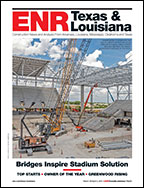
We were rising now, slowly, through the Central Lift Building. The WinSteel walls of the elevator gave a bizarre voyeur's view of the guts of the structure. Layers of steel beams sandwiched themselves between wood-paneled lobbies and art-deco hallways. The building seemed designed to mask modernity in a comforting nostalgia. It felt as if it had been there for hundreds of years. It felt stable, permanent and safe. I knew it to be almost brand-new; in fact, there were entire sections of the interior that remained unfinished. These sections were far from the view of the lift I traveled on. I wondered about the other lifts in the massive bank; they sped up and down at frightening speeds. Mine sauntered; it was designed more to showcase than to transport.
 "I heard an anecdote when I was at MIT," said my host. He stood across from me in the lift. He was a short, well-dressed man, not one that would be noticed in a crowd. Still, he was one of the wealthiest men on earth, the architect of the Central Lift—to quote the newspapers, he was "the Despot of Detroit." America has always had a complicated relationship with captains of industry. Mr. Morrow was no exception to this rule. "At least I think it was at MIT. I suppose it doesn't matter." His manner was simultaneously charming and awkward, the mark of any good, self-made billionaire.
"I heard an anecdote when I was at MIT," said my host. He stood across from me in the lift. He was a short, well-dressed man, not one that would be noticed in a crowd. Still, he was one of the wealthiest men on earth, the architect of the Central Lift—to quote the newspapers, he was "the Despot of Detroit." America has always had a complicated relationship with captains of industry. Mr. Morrow was no exception to this rule. "At least I think it was at MIT. I suppose it doesn't matter." His manner was simultaneously charming and awkward, the mark of any good, self-made billionaire.
"The story goes that Henry Ford and Thomas Edison both designed powerplants for automobiles around the same time. Ford's was, as you know, gasoline-powered. It was loud, unreliable, smelly, inefficient, you name it. Edison's motor was electric, the spinning of its own wheels helped charge its batteries and all a person had to do was top it off every night. It was nearly silent, and it required no cranking. It really was a marvel of transportation technology."
I nodded. We were rising out of the top of the Central Lift Building. I saw the rest of the bank of lifts zipping up and down to what I can only describe as a ceiling. New construction rose up from where there had once been roads. Natural light filtered down from skylights in the gray concrete above; it gave the city the feeling of a giant warehouse store.
"Edison thought for sure that Ford would offer him a sizable sum for the rights to the patent. He thought that Ford would at least try to copy his design in some way. But Ford ignored the electric motor. He went ahead with the gasoline-powered engine for his Model-T design."
"Surely, that's not the end of the story," I said.
![]() "Oh, no. Edison became mad with curiosity. Just before the launch of the Model-T, he showed up at Ford's office in a rage. He demanded to know why Ford would ignore such a superior invention." He grinned, as if about to deliver a punch line. "Ford just smiled at Edison and patted him on the back. 'You're right,' he said. 'Your design is better than mine in every conceivable way. Except one: Yours never breaks down.'"
"Oh, no. Edison became mad with curiosity. Just before the launch of the Model-T, he showed up at Ford's office in a rage. He demanded to know why Ford would ignore such a superior invention." He grinned, as if about to deliver a punch line. "Ford just smiled at Edison and patted him on the back. 'You're right,' he said. 'Your design is better than mine in every conceivable way. Except one: Yours never breaks down.'"
I looked at him, unsure of how to respond. I could now see the great support spires rising from the ground to support the ceiling of the city.
"Planned obsolescence: the backbone of the 20th-century economy, the ruin of the 21st. There is no better example than the city that spreads out before us. Detroit was the 20th-century city. It was the 21st-century ruin. I hope to make it the first truly 22nd-century utopia."
"By building a ceiling?"
"Ha! In a manner of speaking, yes." We were rising still, now mere meters below the concrete ceiling. "It is so much more than a 'ceiling,' as you so eloquently put it." We rose through the ceiling into the subway levels, where the tracks were clean and brightly lit. The trains moved around us in a blur. "The problem has always been the streets. We have always tried to clean up the streets, to take it to the streets, to establish street credibility. I know, I grew up on them. We were looking at it all wrong. We didn't need to fix the streets. We needed new streets. We needed better streets."
We rose through tunnels dedicated to automobile traffic. The hum of electric motors rose in the lift. The streets had no sidewalks, no pedestrians, no traffic lights. They crisscrossed under and over each other in seamless transitions. I did not hear a single horn. Traffic flowed like a quiet aluminum river.
"I was in the rain forest in Costa Rica when it came to me. Rain barely even touches the forest floor. It is used by the world above. The world below benefits from being dry, it benefits from the cool darkness. The fauna above can escape the dangers of the forest floor, and the fauna below can escape the dangers of the world above. Everybody wins."
I began to feel sunlight coming down from the top of the lift tube.
"Imagine a place 100 stories up where people could be safe. Imagine storefronts on the 100th floor. Imagine stone pathways surrounded by lush green grass and trees." He became excited now. "Imagine a way to collect rainwater without any water loss. Imagine the downward flow of that water powering turbines. Imagine the thermal energy of the sun being harnessed with total efficiency. No more snow piling up and shutting down the city. No more flooding."
The sunlight from above became stronger as we continued upward. I began to see the tops of trees as we neared the summit of the tube. "It sounds like paradise," I said, distracted by the sight.
"Thousands of generations ago, our ancestors climbed down from the trees. Before we took a step we had invented war, before we learned to walk we invented slavery, by the time we could run we had conceived every way to kill, torture and brutalize each other." We emerged into the blinding light, and the doors of the lift opened. A Garden of Eden surrounded us. Children played, and old men talked on stone benches. The world above felt alive. An oasis of green built above a honeycomb of steel and concrete.
I closed my mouth and swallowed in disbelief.
Mr. Morrow smiled. "Thousands of generations ago, man climbed down from the trees and all of our troubles began. Welcome to Canopy."

Zachary Whitehouse is a grad student at the University of New Hampshire. His background is in American history with a concentration on industry and progress. His stories focus on modern problems and solutions through responsible human ingenuity. He teaches eighth grade at North Hampton Elementary School in North Hampton, N.H.
To see all of the Construction Science Fiction stories, click here.


Post a comment to this article
Report Abusive Comment